
Do you foresee that food production in the Netherlands will decrease due to more stringent regulations from the Green Deal?
Would it be a bad thing if it did? If we consume less meat and dairy products then it would be beneficial. Some 80% of our agricultural land is used to produce animal protein, of which most is feed for livestock. This is not the most efficient way for us to get our protein and we are running into a lot of problems in the Netherlands as a result. We have a huge problem where the soils are so full of nitrogen it is running off into the water systems. We are European champions in biodiversity loss and 99% of our water is polluted.
Although we are getting a lot of ‘cheap’ food, the external effects are negative. We are all in agreement, including conventional farmers, that we need to change the way we grow and consume food. The Green Deal stipulates that we need to reach a 50% reduction in pesticide use, and a 20% reduction in synthetic fertilisers by 2050. These are goals we are very happy about.
‘WE CAN’T EXPECT MUCH FROM CONSUMERS; INSTEAD WE NEED TO REDUCE THEIR CHOICE FOR BUYING NON-GREEN’
In the Netherlands, organic farmers make up 4% of the farming sector, and our goal is to get to 15% this year, and eventually 25% as per the Green Deal’s specifications. That leaves 75% of food production that can be farmed conventionally.
This story is from the {{IssueName}} edition of {{MagazineName}}.
Start your 7-day Magzter GOLD free trial to access thousands of curated premium stories, and 9,000+ magazines and newspapers.
Already a subscriber ? Sign In
This story is from the {{IssueName}} edition of {{MagazineName}}.
Start your 7-day Magzter GOLD free trial to access thousands of curated premium stories, and 9,000+ magazines and newspapers.
Already a subscriber? Sign In

Agripreneur wins top award for butternut coffee
Bloemfontein-based agripreneur Chantelle de Bruyn has achieved global recognition.
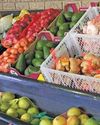
Final fresh produce inquiry pins low level of transformation on farming environment
The Competition Commission released its final report on the Fresh Produce Market Inquiry in mid-January, maintaining that transformation in the industry was being impeded by a lack of support for emerging farmers.
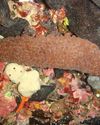
Illegal fishing in Australia reveals market gap for farmed sea cucumber
Illegal fishing practices in Australia have revealed a large market opportunity for sea cucumber farming.

An introduction to the Ford Ranger Tremor
In December 2024, the CAR magazine team received the Ford Ranger Tremor to accompany them through the festive season and into the new year. Oliver Keohane looks at what the Tremor is all about.

A farmer's experience with bush encroachment
Farmer David Addenbrooke has worked in the Zimbabwean beef industry for around four decades. Here, he relates his experience with bush encroachment and offers farmers some advice on battling this scourge.
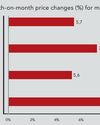
Good rains boost SA's summer grain crop prospects
This week, Absa AgriBusiness analyses several market dynamics and shares its expectations for local grain and oilseed prices over the coming months.
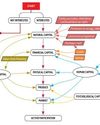
A self-help tool for getting young people engaged in agriculture
The active engagement of the youth in agriculture is pivotal to the sustainability and growth of the sector. Empowering them with the necessary support is key to nurturing future farmers who are equipped to overcome future challenges like the effects of climate change.Dr Primrose Madende, researcher at the Department of Agricultural Economics at the University of the Free State
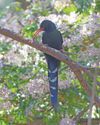
Rallying to the cackle of this raucous bird
The gregarious and territorial Green Wood-hoopoe, also known as the Red-billed Wood-hoopoe, is extremely vocal and is often heard before it is seen. And for very good reason,

SA coffee lovers can expect price increase
South African coffee prices are expected to spike sharply in the foreseeable future because of failed crops in the country’s main importing countries: Brazil and Vietnam.
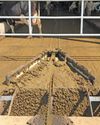
Paving the way for a greener dairy industry
The dairy industry is often criticised for its environmental impact, but a new innovation called DESTiny aims to empower farmers to take control of their carbon footprints. Riana Reinecke, the tool's developer, explained to Glenneis Kriel how it works and how farmers can benefit from it.